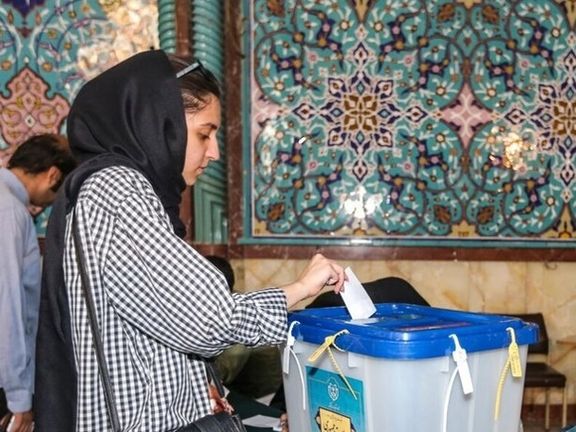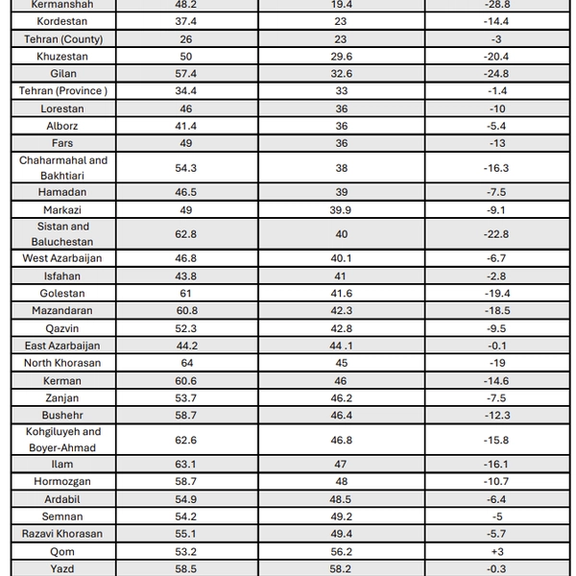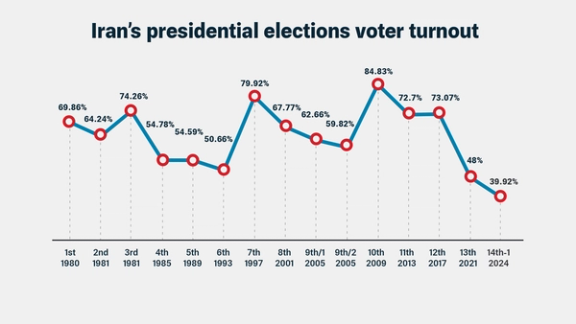Voter Turnout Plummets Across Iran's Restive Provinces

Voter turnout in Iran’s Friday snap presidential election reveals a sharp decline across various provinces, particularly in regions that were centers of protests in 2022 and 2023.

Voter turnout in Iran’s Friday snap presidential election reveals a sharp decline across various provinces, particularly in regions that were centers of protests in 2022 and 2023.
Based on official tallies, significant drops in voter engagement were recorded in Tehran (capital city) and in Kordestan and Kermanshah provinces, all of which were epicenters of recent anti-government protests, as well as in restive Sistan-Baluchestan province, which saw a dramatic 23-percent decrease in turnout.

The nationwide protests, ignited by the death in custody of Kurdish Mahsa Amini, saw Kordestan (Kurdistan) among the first to rise up against the clerical rulers.
In the presidential vote, Kermanshah recorded a mere 19.5 percent participation rate, 28.8 percent less than the 2021 turnout. Greater Tehran and Kordestan also recorded a 23-percent turnout, down from 26 percent and 37.4 percent respectively in 2021.
These regions, at the forefront of protests, reflect citizens’ frustration over systemic corruption, economic hardships, repression and lack of political freedoms.
Voter turnout In Sistan-Baluchestan in southeastern Iran nosedived from 62.8 percent in 2021 to just 40 percent in 2024. This marginalized and underrepresented region faces severe socio-economic challenges and repression.
During Bloody Friday on September 30, 2022, security forces killed around 100 protesters and injured hundreds more. The government has repressed the weekly protests following Friday prayers, leading to the arrest of many Baluch Sunnis.
The northern provinces of Gilan, Mazandaran and Golestan also saw significant decreases of 24.8, 18.5 and 19.4 percent, respectively, while Khuzestan's turnout dropped by 20.4 percent.
The only province that showed a minor increase was Qom, home to Iran's biggest Shia seminary, which saw a three-percent increase in turnout.
The June 28 presidential election marked the lowest voter turnout in the history of the Islamic Republic, with only 39.92 percent participation. This breaks the previous record set during the last election, in which the late President Ebrahim Raisi won with a turnout of 48 percent.

Activists and officials have highlighted that the low turnout is a clear sign of the public's discontent with the ruling autocracy, demonstrated through the widespread boycott of the election.
Mostafa Pourmohammadi, who scored the lowest number of votes in the election, said on X, "Greetings to all of you who came to vote on June 29, and respect to all of you who did not believe us and did not come. Your presence and absence are full of messages that I hope will be heard. Your message is clear and unambiguous.”